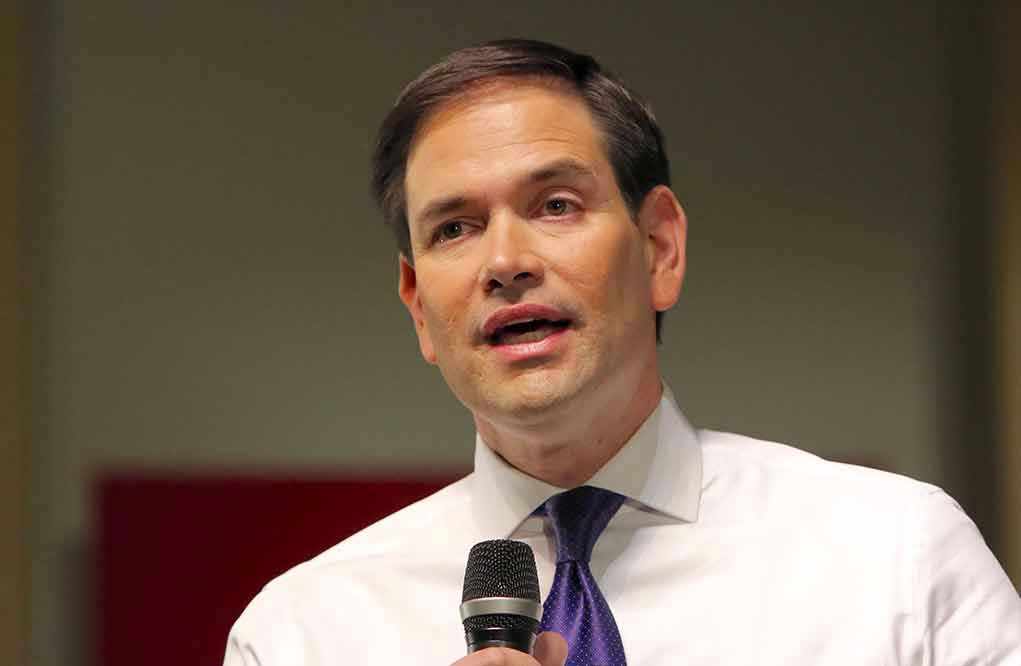
Secretary of State Marco Rubio secured a groundbreaking joint security agreement with Mexico that directly targets the deadly flow of fentanyl, illegal immigration, and cartel violence plaguing American communities.
Story Highlights
- Rubio and Mexican officials finalize comprehensive security and immigration cooperation framework
- Agreement integrates counter-narcotics, border security, and anti-trafficking operations
- New framework builds on $7.5 billion federal investment in interdiction and enforcement
- Partnership targets transnational criminal organizations fueling America’s opioid crisis
Trump Administration Delivers on Border Security Promise
Secretary Rubio’s successful negotiations with Mexican Foreign Minister and President Sheinbaum represent a stark departure from the Biden administration’s failed approach to border security. The comprehensive agreement establishes coordinated enforcement mechanisms targeting the root causes of illegal immigration and drug trafficking that have devastated American families for years. This partnership demonstrates Trump’s commitment to securing America’s southern border through diplomatic strength rather than weak capitulation.
Coordinated Strike Against Cartel Operations
The joint security framework specifically targets transnational criminal organizations, including the Sinaloa and Jalisco cartels, which have flooded American streets with over 1.2 billion doses of fentanyl seized in 2023 alone. Mexican cooperation enables enhanced intelligence sharing and coordinated operations against these narco-terrorists who have turned American communities into war zones. The agreement leverages existing U.S. investments in border technology and personnel while expanding Mexico’s commitment to dismantling trafficking networks.
This partnership addresses the interconnected nature of cartel operations that simultaneously traffic drugs, weapons, and human beings across the border. By integrating immigration enforcement with counter-narcotics efforts, the framework closes loopholes that cartels have exploited to maximize profits while destroying American lives. The comprehensive approach recognizes that border security requires addressing multiple threat vectors simultaneously rather than piecemeal enforcement.
Massive Federal Investment Backs Enforcement
The Trump administration’s FY 2025 budget allocates $6.5 billion for interdiction operations and $1 billion for international drug control efforts, providing the resources necessary to implement this enhanced cooperation. These investments fund expanded CBP operations, DEA investigations, and new visa restriction policies targeting individuals involved in fentanyl trafficking. The substantial funding commitment demonstrates serious resolve to end the humanitarian and security crisis created by years of weak border policies.
Congressional support for enhanced enforcement reflects bipartisan recognition that America’s opioid crisis demands aggressive action against its sources. The framework builds upon lessons learned from the Mérida Initiative while incorporating new diplomatic and economic tools to maximize pressure on criminal organizations. This comprehensive approach addresses both supply-side enforcement and the international cooperation necessary to disrupt sophisticated trafficking networks.
Sources:
National Drug Control Strategy FY 2025 Budget Summary
Presidential Memorandum on Major Drug Transit Countries for FY 2025
Combatting the Rise of Fentanyl and Synthetic Drugs Through US Foreign Policy
Mérida Initiative and U.S.-Mexico Cooperation
New Visa Restriction Policy to Deter Flow of Fentanyl

